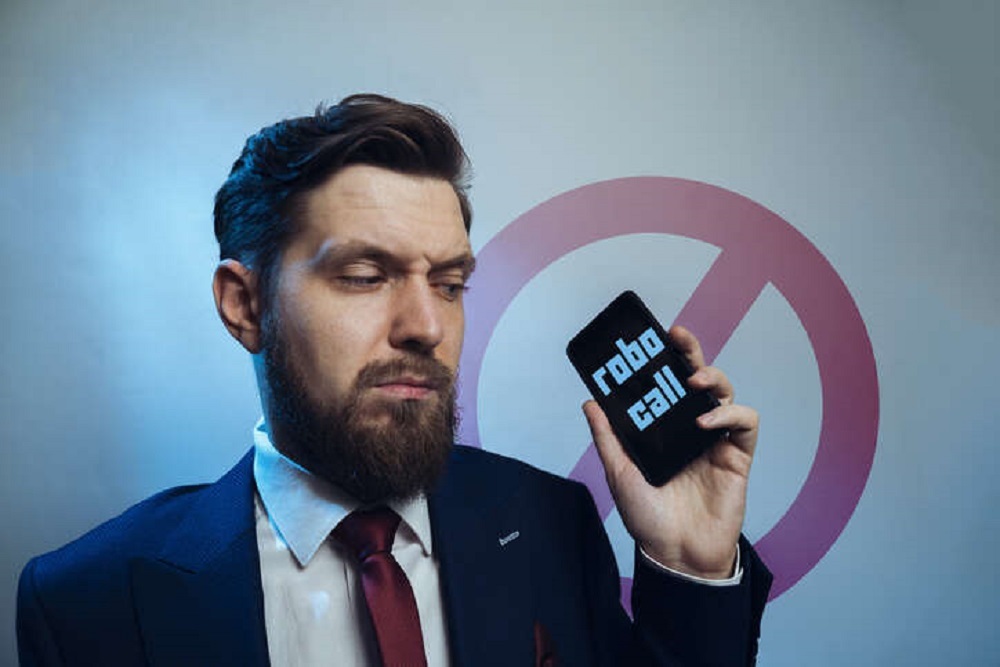Source: Greater Iowa Better Business Bureau
Source: Greater Iowa Better Business Bureau
Greater Iowa Better Business Bureau issued the following announcement on Sept. 8.
In recent years, the amount of robocalls consumers receive each month has skyrocketed. Because of this, many people are turning to robocall blocking apps to cut down on the amount of unwanted calls they receive. Here’s what you should know about these apps before you download one.
Are robocalls legal?
According to Federal Trade Commission regulations, in the United States, only a few kinds of robocalls are legal. They include informational messages, messages from health care providers, debt collection calls, political messages, and messages for charities. In Canada, registered charities, political campaigns, and newspapers are exempt from robocall laws. Needless to say, the great majority of robocalls consumers receive are, in fact, illegal.
What are robocall blocking apps?
Robocall blocking apps are available from most major cell phone provider companies in the United States and Canada, as well as from third-party app developers. Call blocking apps are essentially filters. App companies use call data and user reports to identify or predict which calls are illegal or come from scammers. Using this information, most apps give you the option to block flagged callers and anonymous calls from “unknown” callers, prescreen your calls before the phone rings, and receive warnings about numbers that are using fake caller ID information.
Some apps have other functions too, such as letting you create a blacklist of callers who should be blocked, or a whitelist of callers who are allowed to call you. Some robocall blocking apps are free, while others are paid services.
Are robocall blocking apps effective?
Robocall blocking apps are generally effective at blocking most robocalls, but they won’t eliminate robocalls completely. This is thanks, in part, to Voice over Internet Protocol (VoIP) - a technology that lets people place voice calls over a broadband internet connection. It’s made the ability to spoof caller IDs and carry out mass calling cheaper and easier than ever before. This means that scammers can quickly carry out mass calls from a new number if they find the number they are currently using has been blocked. Still, robocall blocking apps do significantly cut down the amount of robocalls consumers receive.
Some robocall blocking apps respond to scammers calls with nonsensical messages to confuse con artists, but experts debate whether this scam baiting approach is effective. Sometimes interacting with robocalls can result in your number being marked as “live,” which may actually increase the number of calls you receive.
Robocall blocking apps and privacy concerns
There are some privacy concerns when it comes to robocall blocking apps. Some apps require access to your voicemail to identify robocall messages and flag the number, but not everyone is comfortable with sharing the complete contents of their voicemail inbox. Other apps send user or device data to third-party data analytics companies as soon as they are installed.
The best way to make sure your privacy is protected is to thoroughly read the app’s privacy policies before you install it. See if this is a company you can trust. In addition, it’s always wise to learn more about an app by reading consumer reviews or articles from reputable sources, or check out the company on BBB.org.
Other ways to block robocalls
There are a few more steps you can take to cut down on the amount of robocalls you receive:
Register your telephone numbers with the National Do Not Call Registry or List. In the U.S. the Federal Trade Commission (FTC) runs the National Do Not Call Registry. In Canada, it’s the National Do Not Call List. Once you’re registered, you can be sure that any company using robocalls to try to sell you something without your permission is not obeying the law.
Report illegal robocalls. In the U.S., report these calls to the FTC and Federal Communications Commission (FCC). In Canada, you can file a complaint here. This will help federal agencies to identify the source of unwanted calls and take legal actions against offenders.
If you don’t recognize a number, or the caller ID appears as “unknown,” don’t pick up the phone. Let the call go to voicemail. Return the call only after you’ve determined the caller is legitimate.
Watch out for neighbor spoofing. Many scammers use numbers conspicuously similar to your own to try to convince you to answer the call. Remember, con artists can easily fake caller ID numbers so don’t answer calls from someone you don’t know – even if the call appears to be coming from someone who lives in your area.
Ask your phone service provider what they do to block illegal robocalls. They may already include certain call blocking options in your current service plan. If so, make sure the functions are activated on your device. Or your service provider may offer additional scam and robocall blocking protection for a reasonable fee.
If you answer an illegal robocall by accident, hang up immediately. Some robocalls ask you to press a button to stop receiving calls or say “yes” in reply to a question. These are tricks scammers use to identify and target live respondents. They may even use your “yes” to authorize charges to which you haven’t agreed.
Original source: https://www.bbb.org/article/news-releases/23020-bbb-tip-what-you-should-know-about-robocall-blocking-apps






 Alerts Sign-up
Alerts Sign-up